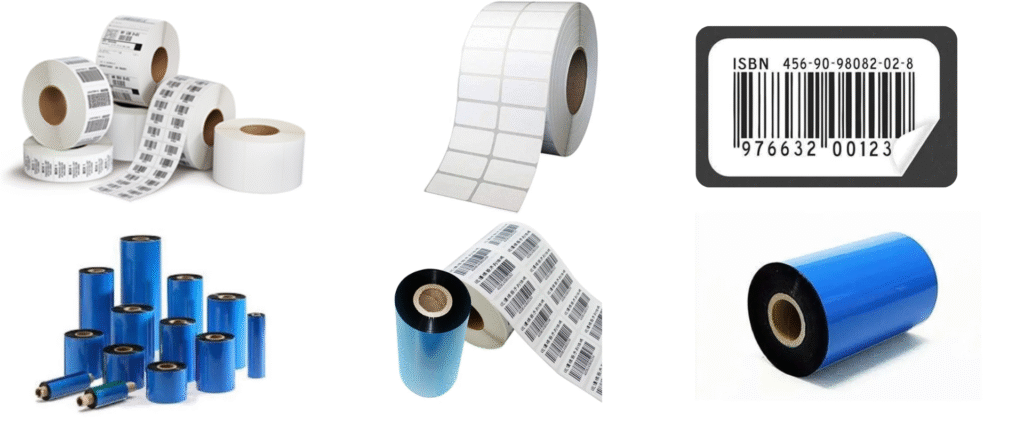
Ultimate Guide to Barcode Solutions: Rolls, Labels, Stickers & Ribbons
Barcode Solutions: Types of Barcode Rolls for Printing
Introduction
Barcodes might look like a bunch of lines to most people, but to businesses—they’re golden. Barcode solutions streamline inventory, reduce errors, and speed up operations. From barcode rolls to ribbons, each piece plays a role in making product labeling and tracking efficient and accurate.
What Are Barcode Rolls?
Barcode rolls are continuous strips of barcode labels wound onto a roll. These are typically loaded into printers and used for fast, repetitive printing—ideal for logistics, retail, and warehousing.
Types of Barcode Rolls
Direct Thermal Rolls: No ribbon required, ideal for short-term use like shipping labels.
Thermal Transfer Rolls: Require ribbons, used for durable labels that resist heat and moisture.
Barcode Labels: An Overview
Barcode labels are pre-cut adhesive labels that have a barcode printed on them. These are used across retail stores, warehouses, and even hospitals.
Materials Used
Paper: Budget-friendly and best for dry indoor use.
Synthetic: More durable, water-resistant, and tear-proof.
Custom Labels
Need something unique? Many suppliers offer custom barcode labels tailored in size, shape, and adhesive strength.
Understanding Barcode Stickers
You might wonder: “Aren’t barcode stickers just labels?” Not quite. While similar, barcode stickers often refer to labels that are more decorative or used for branding along with barcoding.
Where Are Barcode Stickers Used?
On packaging boxes
On individual retail items
In logistics and tracking
Design Tips
Use high-contrast colors and clear fonts. Stickers should not only scan well—they should look good too.
Barcode Ribbons Explained
Barcode ribbons are essential for thermal transfer printing. They act as the ink that gets transferred onto the label.
Types of Barcode Ribbons
Wax Ribbons: Affordable and suitable for standard paper labels.
Resin Ribbons: Best for synthetic labels; very durable.
Wax-Resin Ribbons: Balanced option; durable and cost-effective.
How to Choose the Right Ribbon
Always match your ribbon type to the label material and printer model. Using the wrong combo can lead to smudged or unreadable barcodes.
Barcode ribbons come in different types. Therefore, choosing the right one is important.
in Addition
Before purchasing, ask:
What’s the expected label lifespan?
Will it be used indoors or outdoors?
What kind of surface will it stick to?
Barcode Printing Solutions
Should you print in-house or outsource?
In-house printing gives you control and speed.
Outsourcing is better for high-volume or custom jobs.
Tips for Great Prints
Keep printers clean
Use compatible ribbons and labels
Store labels in a cool, dry place
Conclusion
From barcode rolls to ribbons, every component in a barcode solution setup matters. Whether you run a retail shop, warehouse, or eCommerce store—choosing the right barcode supplies can make a huge difference in your workflow, efficiency, and branding. Go for quality, understand your needs, and always pair the right materials together.
❓FAQs
1. What is the difference between wax and resin ribbons?
Wax is great for everyday paper labels. Resin is super durable and ideal for harsh conditions.2. Can barcode stickers be used outdoors?
Yes, but only if they’re made from weather-resistant materials like synthetic vinyl and printed with resin ribbon.3. What type of barcode roll is best for shipping labels?
Direct thermal barcode rolls are perfect—fast and cost-effective for short-term use.4. Are barcode labels waterproof?
Only synthetic labels printed with resin or wax-resin ribbons are waterproof.5. How do I print barcodes at home?
You’ll need a thermal barcode printer, compatible labels, and possibly a ribbon depending on the printer type.
